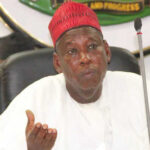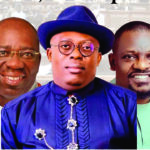
Some election stakeholders on Thursday called on Nigerians, especially civil society organisations (CSOs), to be interested in who succeeds Prof. Attahiru Jega as Chairman of the Independent National Electoral Commission (INEC).
The stakeholders made the call when The Election Monitor, a local election observation group, publicly presented its report on the 2015 general elections in Abuja.
Speakers at the presentation included representatives of Civil Society Organisations, Non-Governmental Organisations, INEC and relevant government agencies.
In a goodwill message, Mr Shehu Wahab, an INEC Deputy Director, said all hands must be on deck for the nation to consolidate on the gains recorded in the last general elections.
To do this, Wahab said, the next task before Nigerians was to insist on the appointment of credible Nigerians to succeed the outgoing INEC commissioners led by Jega.
In his message entitled “After 2015, What Next?’’, he said “the composition of the membership of INEC is very critical to the success of election conduct in the country.
“As the tenure of Jega winds up in June, Nigerians must be interested in who takes over from him. We need to dig dip into those to be appointed as the new set of INEC commissioners.
“CSOs have a major role to play and they must endeavour to beam their searchlights into those to be nominated because if you get it wrong in the composition of INEC, the gains of the last elections will be rolled back.’’
Wahab also urged Nigerians to brace up to the task of holding government officials accountable right from the day they stepped into office in order to ensure good governance.
Mr Dayo Olaide of the MacArthur Foundation urged the next INEC chairman to build on the foundation laid by Jega in the use of technology in the conduct of elections.
Olaide said “the introduction of card readers was a game changer in the last elections. It is a message that needs to be passed on to the incoming administration.
“The future of elections in this country depends largely on raising the role of technology to shut out election riggers in order to strengthen the electoral system.’’
The Foundation official stressed the need for strict enforcement of the country’s electoral laws, especially on the aspect bordering on the punishment of electoral offenders.
He said that the laudable reforms made by Jega that resulted in the success of the last elections could be reversed if electoral offenders were allowed to go scot free.
On her part, Madam Husseina Akila of Youth Alert, an NGO, said Nigeria’s democracy was growing, judging by the success of the last general elections.
She, however, highlighted some issues, which she said the next INEC chairman, as well as the incoming Muhammadu Buhari administration should look into.
Akila said that the country’s democratic process was still not conducive enough for women to freely exercise their franchise, especially their rights to be voted for.
“Elections are still highly monetised in this country and this makes it expensive for women who are economically-disadvantaged compared with the men.
“We hope the incoming government will carry out some reforms to make the system less expensive. We are also expecting CSOs to launch serious advocacies for this.
“Again, the social media was a very serious source of concern during the last elections. Some of the information posted were serious enough to plunge the country into chaos as there was no way to verify their authenticity.
“We hope there would be ways to check their excesses in future and hope that CSOs, regulatory agencies and other stakeholders would reflect on this.’’













